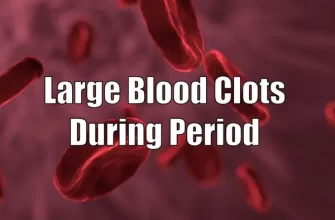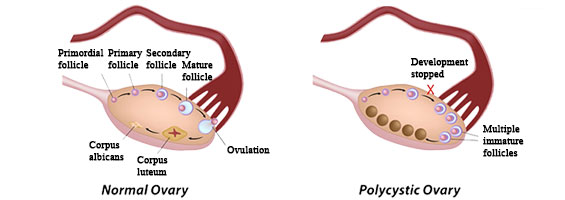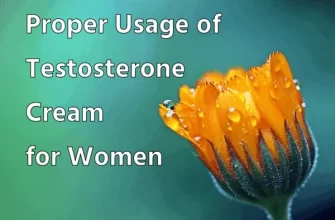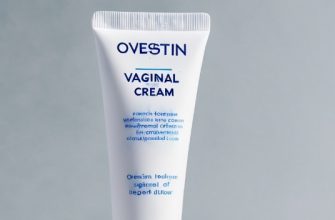Estrogen, a hormone mainly manufactured by the ovaries (though found in smaller quantities in males too), has a vital role in the female reproductive system. Its primary job is to control the menstrual cycle and aid in the growth of secondary sexual traits like breast development and widening of the hips.
Additionally, estrogen assists in preserving healthy bones, cardiovascular well-being, and cognitive functioning.
It also contributes to regulating mood and overall happiness. Maintaining balanced levels of estrogen is crucial for sustaining optimal health and energy in both males and females.
The 10 Tips for Boosting Estrogen Naturally
Here is a list of tips for boosting estrogen naturally:
- Consume phytoestrogen-rich foods: Include foods like flaxseed and soy products in your diet, as they contain natural plant estrogens that can help increase estrogen levels.
- Add red clover and dong quai to your regimen: These herbs have been traditionally used to promote estrogen balance and can be beneficial in boosting estrogen production.
- Manage stress levels: Chronic stress can disrupt hormone balance, including estrogen production. Explore stress management techniques like meditation, yoga, or deep breathing exercises to support healthy estrogen levels.
- Prioritize quality sleep: Adequate sleep is essential for hormonal health, including estrogen production. Aim to get 7-8 hours of uninterrupted sleep each night to support optimal hormone balance.
- Avoid hormone disruptors: Chemicals found in household products, plastics, and pesticides can interfere with estrogen production. Choose natural alternatives and try to minimize exposure to these toxins.
- Stop alcohol consumption: Alcohol intake can negatively impact estrogen levels. Stop your alcohol consumption or opt for healthier alternatives like herbal teas or mocktails to support hormonal balance.
- Reduce caffeine intake: High caffeine intake has been associated with altered estrogen levels. Consider cutting back on caffeinated beverages like coffee and soda or switching to decaffeinated options.
- Understand hormone replacement therapy (HRT): HRT involves the use of synthetic hormones to supplement insufficient levels of estrogen. Consult with a healthcare professional to discuss the potential benefits and risks of this treatment option.
- Incorporate estrogen-boosting foods into your diet: Certain foods like cruciferous vegetables (broccoli, cabbage) contain compounds that promote the body’s natural production of estrogen.
- Consider herbal supplements: Herbs such as maca root, ginseng, black cohosh, and evening primrose oil have been used in traditional medicine to support hormonal health and estrogen production. Consult with a healthcare professional before adding any supplements to your routine.
By following these tips, you can naturally support your body’s estrogen production and maintain optimal hormone balance. Remember to consult with a healthcare professional before making any significant changes to your lifestyle or starting herbal supplements.
Natural Supplements and Herbs for Estrogen Boost
When it comes to boosting estrogen naturally, incorporating natural supplements and herbs into your routine can be beneficial. Two commonly used options are flaxseed and soy products, which contain phytoestrogens that mimic the effects of estrogen in the body. Another herb worth considering is red clover, known for its estrogen-balancing properties. Dong Quai, a traditional Chinese herb, is also believed to support healthy estrogen levels. These supplements and herbs can be a valuable addition to your regimen for promoting estrogen production in a natural way.
Flaxseed and Soy Products as Phytoestrogens
Phytoestrogens are plant compounds that have estrogen-like properties. Flaxseed and soy products are two sources of phytoestrogens that can naturally boost estrogen levels in the body. Flaxseed contains lignans, which are converted into enterolactone and enterodiol in the intestines, acting as weak estrogen-like substances. Soy products, such as tofu and soy milk, contain isoflavones, which also have estrogenic effects. Incorporating flaxseed and soy products into your diet can help support hormonal balance and increase estrogen production naturally.
Red Clover and Dong Quai for Estrogen Balance
Red Clover and Dong Quai are two natural supplements that can help balance estrogen levels in the body. Red Clover contains compounds called isoflavones, which are phytoestrogens that mimic the effects of estrogen in the body. These phytoestrogens can help alleviate symptoms of estrogen deficiency and promote hormonal balance. Similarly, Dong Quai is a traditional Chinese herb known for its ability to regulate estrogen levels and provide relief from various menopausal symptoms. Incorporating these supplements into your routine may support healthy estrogen production and maintain hormonal equilibrium.
Lifestyle Changes for Hormonal Balance
Lifestyle changes play a crucial role in maintaining hormonal balance, including boosting estrogen levels naturally. One important factor to consider is stress management. High levels of stress can disrupt hormone production, so finding effective stress reduction techniques such as mindfulness or exercise can be beneficial.
Additionally, getting adequate sleep is essential for hormonal health and promoting estrogen production. Creating a consistent sleep routine and ensuring quality sleep can contribute to overall hormonal balance. Making these lifestyle adjustments can help support optimal estrogen levels in the body.
Stress Management and its impact on Estrogen
Stress management plays a crucial role in maintaining balanced estrogen levels. When the body is chronically stressed, it produces cortisol, a hormone that can interfere with estrogen production. High levels of cortisol can disrupt the delicate hormonal balance and lead to a decrease in estrogen. Therefore, it is essential to incorporate stress management techniques into daily life to support healthy estrogen levels. This can include practices such as meditation, deep breathing exercises, regular exercise, and engaging in activities that promote relaxation and reduce stress.
Adequate Sleep and its influence on Estrogen Production
Getting enough sleep is crucial for maintaining balanced estrogen levels in the body. During sleep, the body goes through various restorative processes, including hormone production and regulation. Lack of sleep can disrupt these processes, affecting estrogen production. Research has shown that insufficient sleep can lead to decreased estrogen levels, which can result in hormonal imbalances and potential health issues. Therefore, ensuring an adequate amount of quality sleep is essential for supporting optimal estrogen production and overall hormonal balance.
Avoiding Estrogen Disruptors
To maintain balanced estrogen levels, it’s important to avoid substances that can disrupt hormonal health. Chemicals and toxins found in everyday products like plastics, personal care products, and cleaning agents can have estrogen-like effects on the body and disturb its delicate balance. It’s crucial to limit exposure to these disruptors by opting for natural and organic alternatives whenever possible. By being mindful of these factors, individuals can support their overall hormonal well-being.
Chemicals and Toxins to avoid for hormonal health
To maintain optimal hormonal health, it is important to be mindful of the chemicals and toxins that can disrupt estrogen levels. Certain chemicals found in everyday products, such as parabens, phthalates, and BPA, have been linked to hormonal imbalances. These substances are commonly found in items like plastics, personal care products, and household cleaners. By avoiding these harmful chemicals and opting for natural alternatives, you can help promote balanced estrogen production in your body.
Stop Alcohol and Limit Caffeine for balanced estrogen levels
When it comes to maintaining balanced estrogen levels, it is important to be mindful of the role that alcohol and caffeine can play.
Studies have shown that alcohol consumption can lead to decreased levels of estrogen, while caffeine has been shown to interfere with estrogen absorption and transportation in the body. Therefore, quitting alcohol and reducing caffeine consumption can help support healthy and balanced estrogen levels.
Hormone Replacement Therapy and its Considerations
Hormone Replacement Therapy (HRT) is a medical treatment that involves the use of synthetic hormones to replace the declining levels of estrogen in the body. It is commonly prescribed to menopausal women or those experiencing hormonal imbalances. However, before considering HRT, it is essential to weigh the potential benefits and risks. HRT has been known to alleviate menopausal symptoms and reduce the risk of osteoporosis, but it also carries certain risks such as an increased likelihood of breast cancer and blood clots.
Understanding Hormone Replacement Therapy (HRT)
Hormone Replacement Therapy (HRT) is a medical treatment that involves replacing hormones, such as estrogen and progesterone, that the body no longer produces in adequate amounts. It is commonly prescribed to alleviate symptoms of menopause, such as hot flashes and vaginal dryness. HRT can be administered through various methods, including pills, patches, gels, and creams.
Weighing the Pros and Cons of HRT for Estrogen Boost
Hormone Replacement Therapy (HRT) is a medical treatment option for individuals seeking to boost their estrogen levels. It involves the administration of synthetic hormones to supplement or replace the body’s natural hormone production. There are several pros and cons to consider when contemplating HRT for estrogen boost.
On the positive side, HRT can effectively alleviate symptoms of hormonal imbalance such as hot flashes, night sweats, and vaginal dryness. It can also help prevent osteoporosis and maintain bone density in postmenopausal women. Additionally, HRT may improve mood and overall quality of life for those experiencing estrogen deficiency.
However, it is important to carefully consider the potential risks associated with HRT. Studies have shown an increased risk of blood clots, heart disease, stroke, and breast cancer in individuals undergoing long-term HRT.
Foods to Incorporate for Estrogen Production
Certain foods can help boost estrogen production naturally. One group of foods to consider are cruciferous vegetables like broccoli, cauliflower, and Brussels sprouts. These vegetables contain compounds called indoles, which can help promote estrogen production. Additionally, incorporating berries and citrus fruits into your diet can provide a good source of vitamin C, which is essential for estrogen balance. By including these foods in your meals, you can support your body’s natural estrogen production.
Cruciferous Vegetables and their estrogen-promoting properties
Cruciferous vegetables, such as broccoli, cauliflower, kale, and Brussels sprouts, are rich in compounds that promote estrogen production. These vegetables contain a substance called indole-3-carbinol, which helps the liver metabolize estrogen effectively and maintain hormonal balance. Additionally, cruciferous vegetables are also high in fiber, which aids in the removal of excess estrogen from the body. Including these vegetables in your diet can support natural estrogen production and contribute to overall hormonal health.
Berries and Citrus Fruits for Vitamin C and estrogen balance
Berries and citrus fruits are not only delicious but also beneficial for estrogen production due to their high content of vitamin C. Vitamin C plays a crucial role in maintaining hormonal balance, including estrogen levels. It acts as an antioxidant and aids in the synthesis of hormones in the body. Berries like strawberries, raspberries, and blueberries, along with citrus fruits such as oranges and lemons, are excellent sources of vitamin C that can support estrogen balance naturally. Incorporating these fruits into your diet can help boost estrogen production and promote overall hormonal health.
Estrogen-Boosting Herbs in Traditional Medicine
In traditional medicine, certain herbs have been used for centuries to naturally boost estrogen levels in the body. Two such herbs are Maca Root and Ginseng. Maca Root is known for its hormone-balancing properties and has been found to stimulate estrogen production. Ginseng, on the other hand, contains compounds that mimic estrogen in the body, promoting hormonal health. Other herbs like Black Cohosh and Evening Primrose Oil also have estrogen-like effects and can be beneficial for supporting healthy estrogen levels. Incorporating these herbs into your wellness routine may help optimize estrogen production and balance in the body.
Maca Root and Ginseng for hormonal health
Maca Root and Ginseng are two natural remedies that have been used for centuries in traditional medicine to promote hormonal health. Maca Root, native to Peru, is known for its ability to balance estrogen levels and improve overall hormonal function. It also helps combat symptoms of hormonal imbalance such as fatigue and mood swings. Ginseng, on the other hand, is an adaptogenic herb that supports the body’s natural ability to adapt to stress. It helps regulate hormone production and promotes overall well-being. Incorporating Maca Root and Ginseng into your daily routine can be a great way to naturally boost estrogen production and support hormonal health.
Black Cohosh and Evening Primrose Oil for estrogen support
Black Cohosh and Evening Primrose Oil have long been used in traditional medicine to support estrogen production. Black Cohosh, derived from the root of the plant, contains compounds that mimic estrogen in the body, helping to restore hormonal balance. Evening Primrose Oil, on the other hand, is rich in gamma-linolenic acid (GLA), which can promote healthy estrogen levels. Both of these natural remedies can be taken as supplements or incorporated into a daily regimen to support optimal estrogen production.










